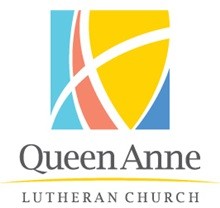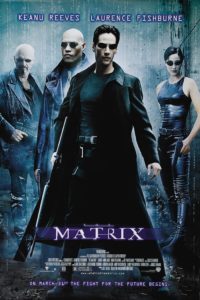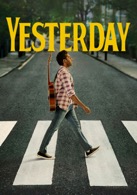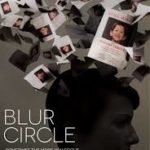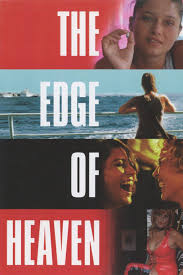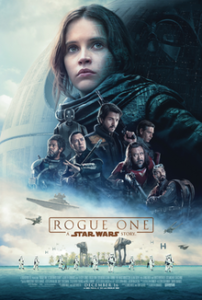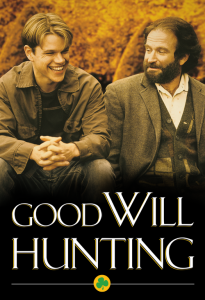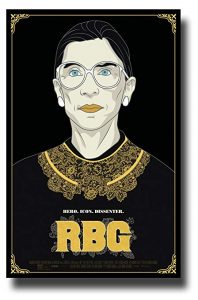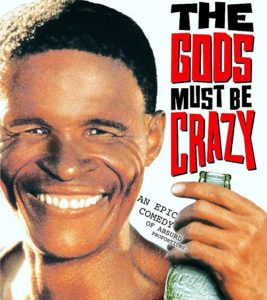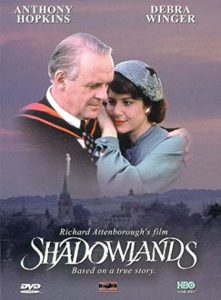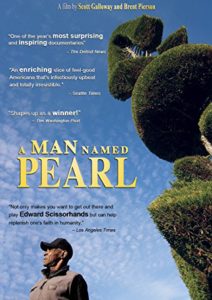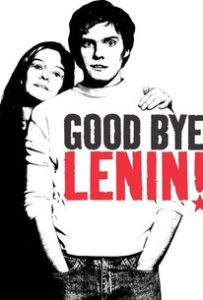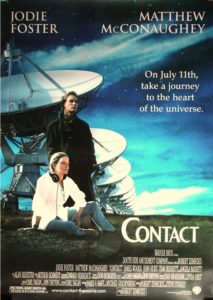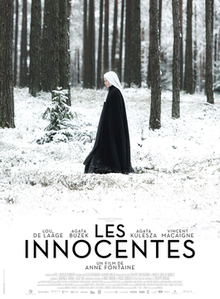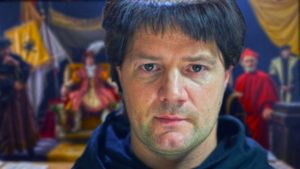Explore the Intersection of
FAITH & FILM
Our Faith and Film gatherings usually ran monthly on Saturdays at 4:00 pm, and were hosted by whoever stepped up and chose a film. The purpose of the gatherings was simply good fellowship and a loose exploration of how the film’s theme or message connects with our faith experience. Scroll down to see movies we have watched and discussed together.
Our Faith and Film gatherings stopped during the pandemic, and although we have not started up again, we are open to the possibility! If you have a film suggestion and are willing to host the discussion, we will help you organize the event and get it on our calendar! Please contact Carol Ann or the church office.
Saturday, Dec. 19 @ 4 PM “Dr. Who Christmas Special (2010)”
All are invited to gather on Zoom with your favorite snack and drink. Carol Ann Davis will share her favorite “Dr. Who Christmas Special” (2010) for us to watch, and discussion will ensue afterwards, almost like old times! Here is a trailer which includes the moving song at the end of the episode.
A CHRISTMAS CAROL: Amy and Rory are trapped on a crashing space liner, and the only way The Doctor (Matt Smith) can rescue them is to save the soul of a lonely old miser. But is Kazran Sardick (Michael Gambon), the richest man in Sardicktown, beyond redemption? And what is lurking in the fogs of Christmas Eve?
Saturday, February 22: “The Matrix”
Without a doubt one of the best and most influential movies of all time, “The Matrix” is the defining science fiction film of the 1990’s and the biggest leap the genre has taken since Kubrick’s “2001: a Space Odyssey” The Matrix depicts a dystopian future where all of humanity has been trapped in a simulated reality, being used as an energy source for artificially intelligent creatures.
A hacker, Neo, is alerted to the falseness of the world they live in, and soon starts on a quest to uncover the truth. (2 hour, 16 minutes long; 1999; Rated R)
“The Matrix” brought questions about existential philosophy and nihilism to the forefront, creating a sci-fi film that reverberates around contemporary culture—and how might the film relate to the Apostle Paul? Explore ideas during the discussion afterward with Dr. Matt Whitlock, who also leads our February forums on the Apostle.
January 2020’s film was “Yesterday”
We started the new year with a feel-good movie that celebrates the instant celebrity of a small-town musician and his attempts to convince the world that he did not create the songs that are making him famous.
SYNOPSIS: While he’s still looking for his big break, musician Jack Malik gets hit by a bus during a global blackout. But when he wakes up to find he’s the lone person on Earth who knows of the Beatles and their songbook, Jack has a huge chance at stardom. (1 hour, 56 minutes. English.)
November’s film was “Blur Circle”
Jill Temple is a single mother still grieving the loss of her young son after he disappeared two years ago. Unable to face the possibility that she has lost him forever, she aggressively and sometimes disturbingly pursues every lead. During her pursuit, she encounters Burton Rose, a man with a mysterious past who seems to record everything with his camera phone. The details of what happened to Burton in the past—and how he has responded to it—force Jill to look at her life in a completely new way.
(2016, not rated, 92 minutes).
October’s film was “The Edge of Heaven”
Set in Germany and Turkey, the film follows two parallel stories of immigrants, violent death, and family members coming to grips with them. Our discussion will focus on the difficult challenge of forgiveness and the meaning of the title, “The Edge of Heaven.” (2007, unrated, 2 hours; in English, German and Turkish, with subtitles)
September’s film was “Rogue 1: A Star Wars Story”
From Lucasfilm, the first of the Star Wars standalone films, “Rogue One: A Star Wars Story,” is an epic adventure. In a time of conflict, a group of unlikely heroes band together on a mission to steal the plans to the Death Star, the Empire’s ultimate weapon of destruction. This key event in the Star Wars timeline brings together ordinary people who choose to do extraordinary things, and in doing so, become part of something greater than themselves. Discussion focused on K250, the “droid” of the film, considering questions raised by our September Forum series on AI. (2016, 2 hours 15 minutes)
July’s film was “The Devil We Know”
In partnership with Earth Ministry, Queen Anne Lutheran hosted a screening of “The Devil We Know.” This moving documentary tells the story of the DuPont corporation introducing nonstick PFAS chemicals—like Teflon—into households and the environment, and unveils the extremely harmful local and global impact of these toxic chemicals. Following the screening, Earth Ministry staff facilitatd e a discussion and shared how we can take action to help Washington continue to lead in fighting toxic chemicals.
April’s film was “Risen”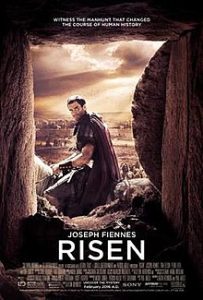
“Risen” is an American biblical drama film directed by Kevin Reynolds and written by Reynolds and Paul Aiello. The film stars Joseph Fiennes, Tom Felton, Peter Firth, and Cliff Curtis, and details a Roman soldier’s search for Yeshua’s body following His resurrection. (2016) PG-13 rating. 1 hour 47 minutes.
February’s film was “Good Will Hunting”
Matt Damon, who created the title character and wrote the script with costar Ben Affleck, gives a star-making performance as Will Hunting, a janitor at M.I.T., who has a gift for mathematics, but needs help from a psychologist to find direction in his life. (1997) R rating. 2 hours 6 minutes.
January’s film was “RBG”
At the age of 84, U.S. Supreme Court Justice Ruth Bader Ginsburg has developed a breathtaking legal legacy while becoming an unexpected pop culture icon. RBG is is a revelatory documentary exploring the unique personal journey of this diminutive, quiet warrior’s rise to the nation’s highest court in this land.
(2018) PG rating. 1 hour 36 minutes.
November’s film was “Won’t You Be My Neighbor?”
“Won’t You Be My Neighbor?” takes an intimate look at America’s favorite neighbor: Mister Fred Rogers. A portrait of a man whom we all think we know, this emotional and moving film takes us beyond the zip-up cardigans and the land of make-believe, and into the heart of a creative genius who inspired generations of children with compassion and limitless imagination. (2018) PG13 rating. 1 hour 34 minutes.
October’s film was “The Gods Must Be Crazy”
A comic allegory about a traveling Bushman who encounters modern civilization and its stranger aspects, including a clumsy scientist and a band of revolutionaries. (1984) PG rating. 1 hour 49 minutes.
September’s film was “Shadowlands”
C. S. Lewis (Anthony Hopkins), the renowned author of “The Chronicles of Narnia” series, is a bachelor and Oxford University professor who spends his free time debating with fellow academics at a pub. Although he seems entirely uninterested in love, Lewis agrees to marry Joy Gresham (Debra Winger), an American writer who is looking to secure British citizenship. Their arrangement soon becomes a romance, and, when Joy is diagnosed with terminal cancer, their bond grows even stronger. (1993) 2 hour 12 minutes.
August’s film was “Temple Grandin”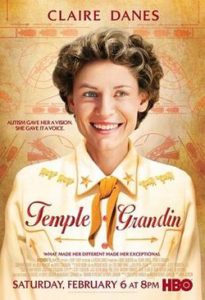
A much-acclaimed biopic of Temple Grandin, an autistic woman who has become one of the top scientists in the humane livestock handling industry. Grandin (Claire Danes) did not speak until age four and had difficulty with social interactions through high school. Today, she is a professor at Colorado State University and well-known speaker on autism and animal handling. She is noted for creating her “hug box”, widely recognized today as a way of relieving stress in autistic children, and her humane design for the treatment of cattle in processing plants, which have been the subject of several books and won an award from PETA. (2010) 1 hour 47 minutes. Golden Globe Award; 7 Emmy Awards
July’s film was “A Man Named Pearl”
“A Man Named Pearl” tells the inspiring story of self-taught topiary artist Pearl Fryar. It offers a message that speaks to respect for both self and others, and shows what one person can achieve when he allows himself to share the full expression of his humanity. (2006) 78 minutes.
May’s film was “Good Bye Lenin!”
The film for May 19 was “Good Bye Lenin!” a poignant comedy set in Berlin in 1989 and 1990 during the time of the fall of the Berlin Wall and German reunification. An East German mother and committed communist, Christiane Kerner, spends eight months in a coma and misses the dramatic events. When she regains consciousness, her family fears that she won’t be able to handle the shock that communist East Germany no longer exists. So her children engage in an elaborate scheme to convince their bed-ridden mother that nothing has changed. This deception becomes increasingly difficult as capitalist changes appear around them and their mother regains some mobility. The family debates whether they should tell her the truth or continue the lie, but then their mother reveals that she also has been concealing an important truth from her family. (2004) 118 minutes. English subtitles. Rated R for brief language and sexuality.
April’s film was “The Farthest”
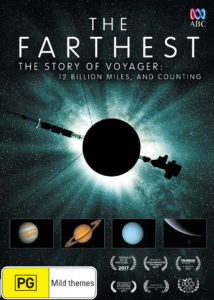
“The Farthest”
From PBS: “The Farthest” tells the captivating tales of the people and events behind one of humanity’s greatest achievements in exploration: NASA’s Voyager mission, which celebrates its 40th anniversary this August. The twin spacecraft—each with less computing power than a cell phone—used slingshot trajectories to visit Jupiter, Saturn, Uranus and Neptune. They sent back unprecedented images and data that revolutionized our understanding of the spectacular outer planets and their many peculiar moons.
Still going strong four decades after launch, each spacecraft carries an iconic golden record with greetings, music and images from Earth—a gift for any aliens that might one day find it. Voyager 1, which left our solar system and ushered humanity into the interstellar age in 2012, is the farthest-flung object humans have ever created. A billion years from now, when our sun has flamed out and burned Earth to a cinder, the Voyagers and their golden records will still be sailing on—perhaps the only remaining
February’s film was “Contact”
January’s film was “A Man Called Ove”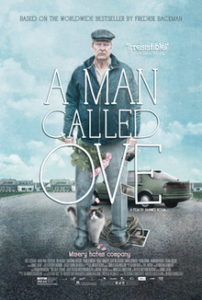
“A Man Called Ove”
Ove, an ill-tempered, isolated retiree who spends his days enforcing block association rules and visiting his wife’s grave, has finally given up on life just as an unlikely friendship develops with his boisterous new neighbors.1 hour 56 minutes long. In Swedish (with subtitles).
October’s film was “The Innocents”
“The Innocents”
Poland, winter of 1945. Mathilde Beaulieu (Lou de Lâage) is a young intern working with a branch of the French Red Cross. They are on a mission to find, treat and repatriate French survivors of the German camps. One day, a Polish nun arrives in the hospital. In very poor French, she begs Mathilde to come to her convent. Mathilde’s life and beliefs change when she discovers the advanced state of pregnancy that affect several of the Sisters of the convent just outside the hospital where she performs. Deeply moving and emotionally layered. 1 hour 55 minutes long. In French (with subtitles).
September’s film was the recently-released PBS documentary
“Martin Luther: The Idea that Changed the World.”
“Martin Luther: The Idea that Changed the World”
The year 2017 marks the 500th anniversary of one on the most important events in Western civilization: the birth of an idea that continues to shape the life of every American today.
In 1517, power was in the hands of the few, thought was controlled by the chosen, and common people lived lives without hope. On October 31 of that year, a penniless monk named Martin Luther sparked the revolution that would change everything.
This movement, the Protestant Reformation, changed Western culture at its core, sparking the drive toward individualism, freedom of religion, women’s rights, separation of church and state, and even free public education. Without the Reformation, there would have been no pilgrims, no Puritans, and no America in the way we know it.
The film follows the dramatic story of Martin Luther’s life: the massive lightning storm that nearly killed him, the bleak self-punishment of his time in the monastery, the corruption that unleashed his anger, his trial before the most powerful man in Europe, and the staged kidnapping that helped him escape the death penalty.
This PBS documentary was filmed in the castles, monasteries and cobblestone streets of eastern Europe. Dozens of historians from Europe and the Americas were interviewed, with a careful eye to ensure all sides of the story are represented. The film is narrated by Hugh Bonneville (“Downton Abbey”) and stars Padraic Delany (“The Tudors,” “The Man Who Knew Infinity”).
